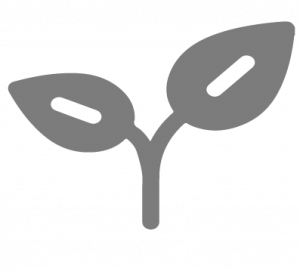Brinjal Shoot And Fruit Borer is a common pests affecting the fruits and causing damage to up to 30-50% of the fruits. The eggs of this pest will be white, larvae pink, pups look greyish and the adult pest appears black and brown with white dots. Here are some methods that you can use to manage these infestations.
Brinjal Shoot And Fruit Borer Symptoms
The most common symptom of brinjal shoot and fruit borer is withered terminal shoots and dried leaves. They make holes in the affected parts and the fruits will have excreta of the pests. The flower buds affected will be shed prematurely.
Brinjal Shoot And Fruit Borer Preventive Measures
- Removing the affected terminal leaves with boreholes is one of the most effective preventive measures to reduce infestation.
- Moreover, the removed leaves and fruits must be destroyed properly.
- You must also avoid continuous cultivation of brinjal.
- In the endemic areas, choose the long and narrow varieties.
Brinjal Shoot And Fruit Borer Chemical Control
- Solomon insecticide is an oil suspension containing Imidacloprid and Beta- Cyfluthrin that acts in systemic and contact methods on a wide variety of insects and affects their nervous system It shows antifeeding properties and is highly effective even in small doses. The recommended dosage is 0.35 to 0.4 ml in 1 liter of water.
- Cover insecticide contains anthranilic diamide which has a unique mode of action that works on the ryanodine receptors to cause muscle contraction and paralysis. It is more effective via ingestion than contact. This broad-spectrum insecticide shows longer effects and protects the plants. The dosage required is 0.4 ml per liter of water.
- Tracer insecticide is of the naturalyte class and the first of its kind. It contains Spinosad produced via fermentation of Saccharopolyspora spinosa and affects the acetylcholine receptor modulator of the pests. It is required in very less dosage at 0.35 – 0.4 ml per liter of water.
- Marshal insecticide works as a stomach poison and by contact with pests. It can ward off those sucking parasites and act on a wide variety of insects. The main ingredient here is Carbosulfan. The required dosage is 2 ml per liter of water and apply it every 5 days for better effects.
Conclusion
As effective as the insecticides are, it is better not to use them during the fruiting period and at the time of harvest. Its application can affect the quality of the yield. We hope that this information will be helpful to you. To get all kinds of information related to such crops visit our website https://kisanvedika.bighaat.com/ or give a missed call on our toll-free number 1800 3000 2434.
Note: The information contained herein is for informational purposes only. Nothing herein shall be construed to be financial or legal advice. Pesticides are a considerable risk of loss in crops and viewers are advised to do their own research before making any decisions.





